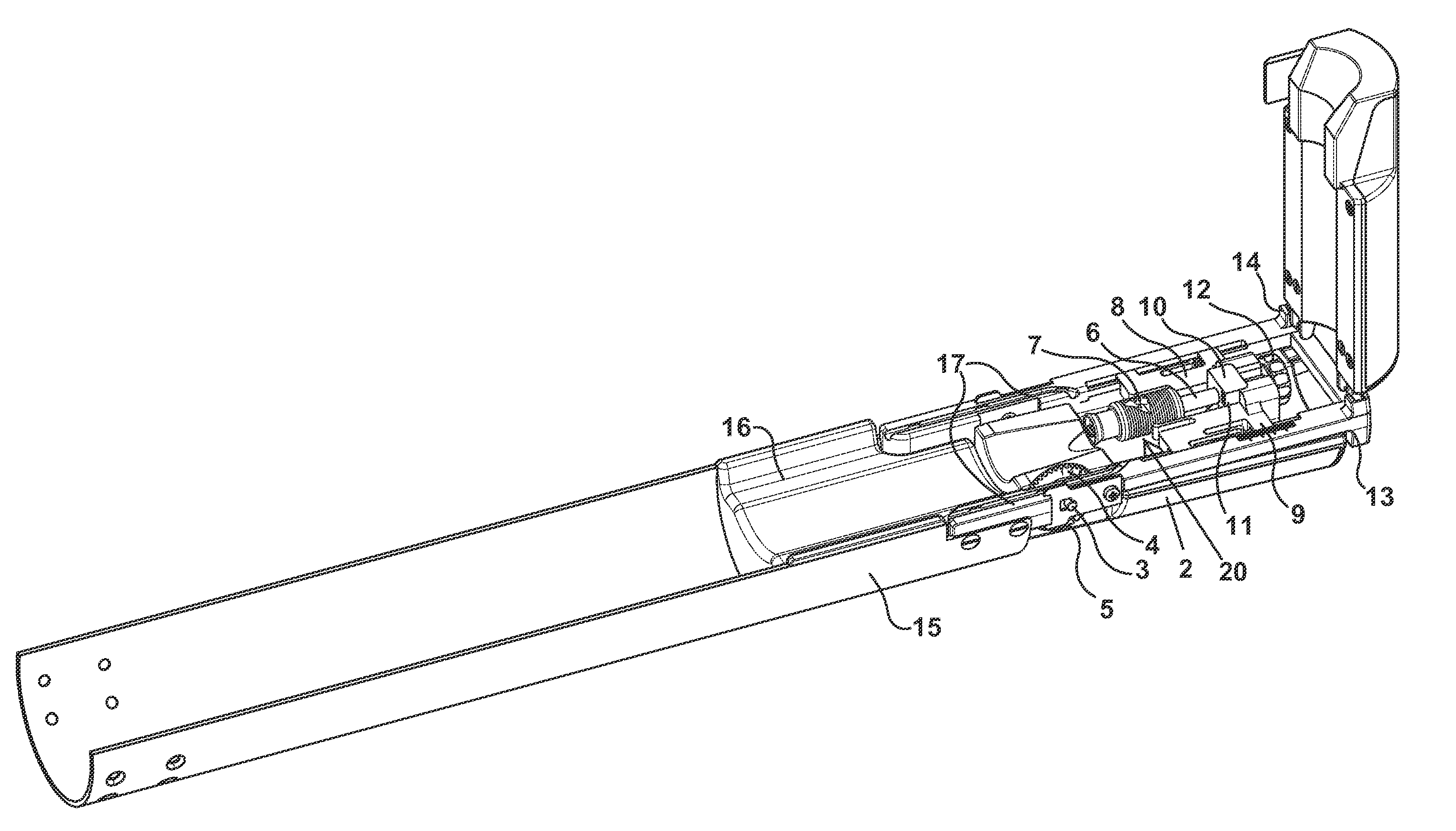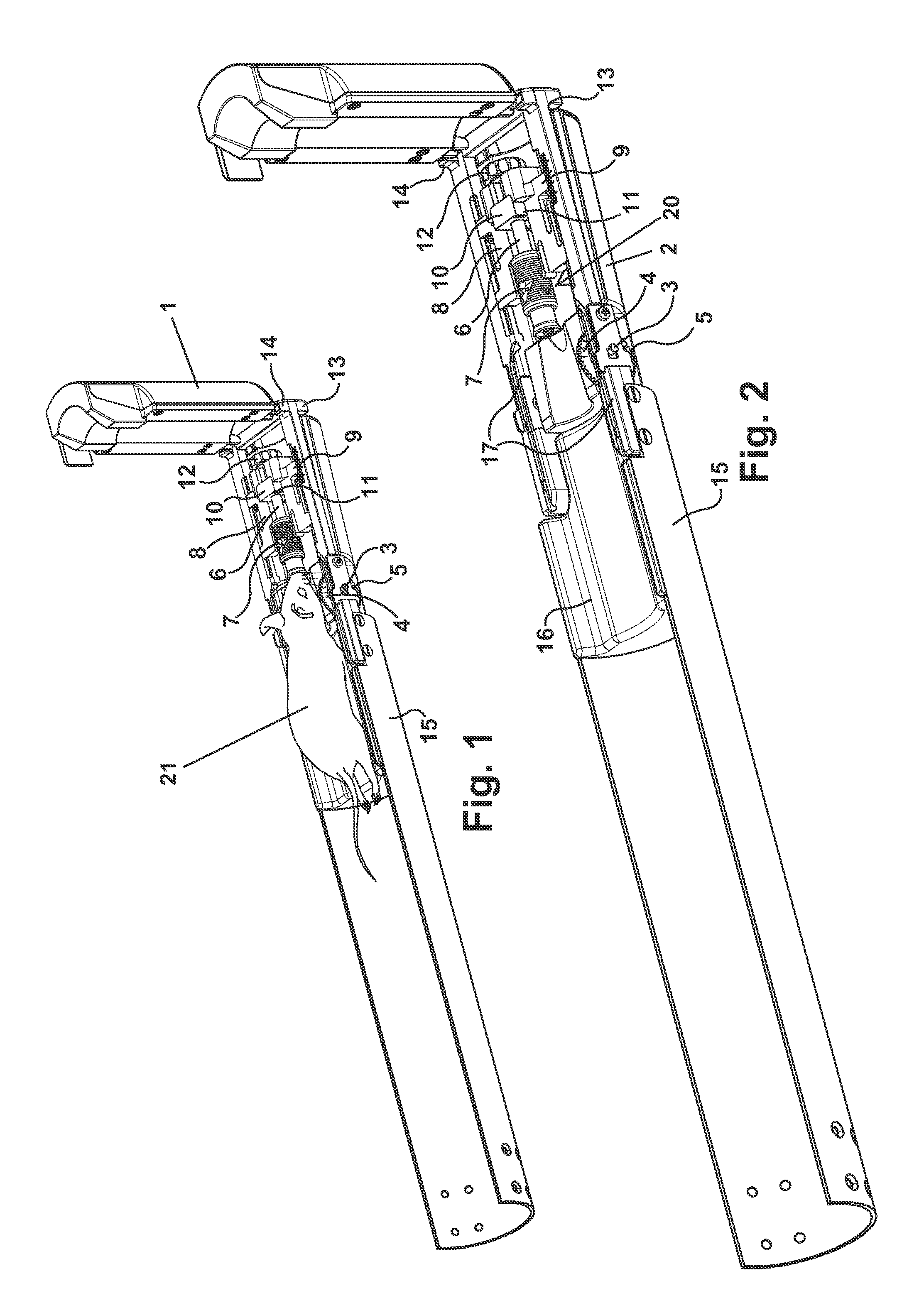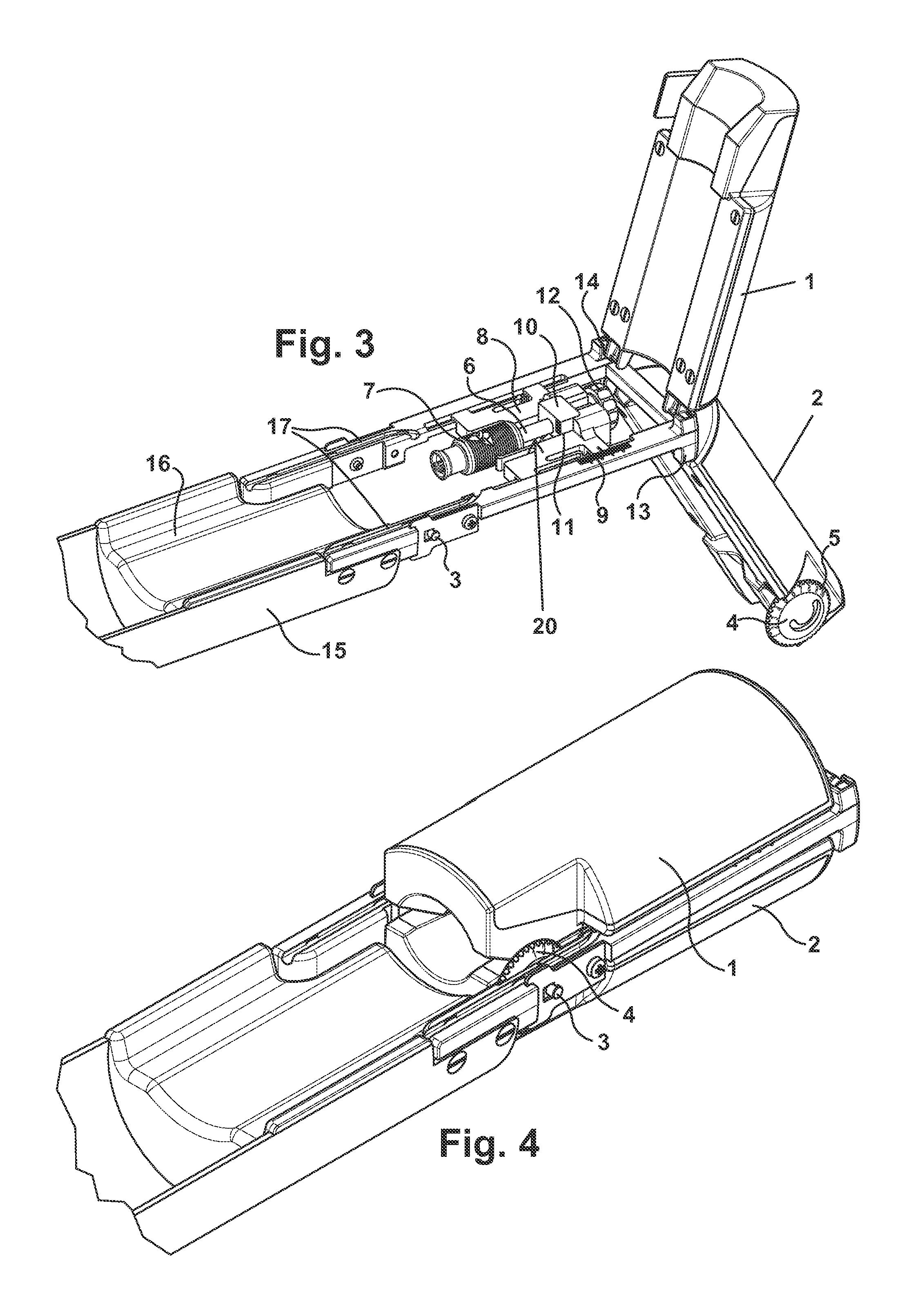Assembly to perform imaging on rodents
a technology for performing imaging and rodents, which is applied in the field of assembly to perform imaging on rodents, can solve the problems of increasing animal stress, difficult to find the correct pressure to securely fix the animal, and unable to eliminate the movement of the remaining animal, so as to achieve the optimal signal-to-noise ratio (snr) and eliminate the effect of remaining animal movemen
- Summary
- Abstract
- Description
- Claims
- Application Information
AI Technical Summary
Benefits of technology
Problems solved by technology
Method used
Image
Examples
Embodiment Construction
[0027]FIGS. 1-7 provide a first example embodiment of an imaging assembly for imaging a mouse, with the assembly comprising a combined array coil including a top part 1 and a bottom part 2. The coil parts contain the electrical coils for performing the imagings. The two coil parts 1, 2 can be separated from the coil holder 17 (see FIGS. 3 & 17) to allow for a correct sample positioning. Each of the coil parts 1, 2 can operate as a separate channel for the imaging signal(s). The assembly parts can be adjusted to the size of the sample, so that the animal head is fixed in position (e.g., using the gas mask 7 and the tooth bar 6) and also to obtain a maximum filling factor and optimum SNR.
[0028]This example assembly is for neuroimaging of an anesthetized, in the case of this particular example, for a mouse. The animal is held in position by the use of three mechanisms that are very quickly implemented and minimise the set-up time and so reduce the stress for the animal. This assembly a...
PUM
 Login to View More
Login to View More Abstract
Description
Claims
Application Information
 Login to View More
Login to View More - R&D
- Intellectual Property
- Life Sciences
- Materials
- Tech Scout
- Unparalleled Data Quality
- Higher Quality Content
- 60% Fewer Hallucinations
Browse by: Latest US Patents, China's latest patents, Technical Efficacy Thesaurus, Application Domain, Technology Topic, Popular Technical Reports.
© 2025 PatSnap. All rights reserved.Legal|Privacy policy|Modern Slavery Act Transparency Statement|Sitemap|About US| Contact US: help@patsnap.com



